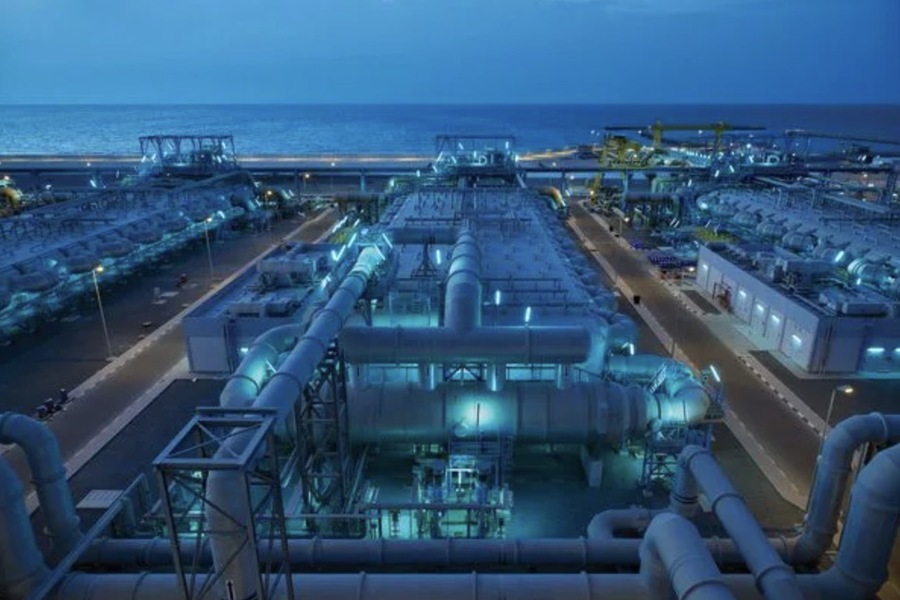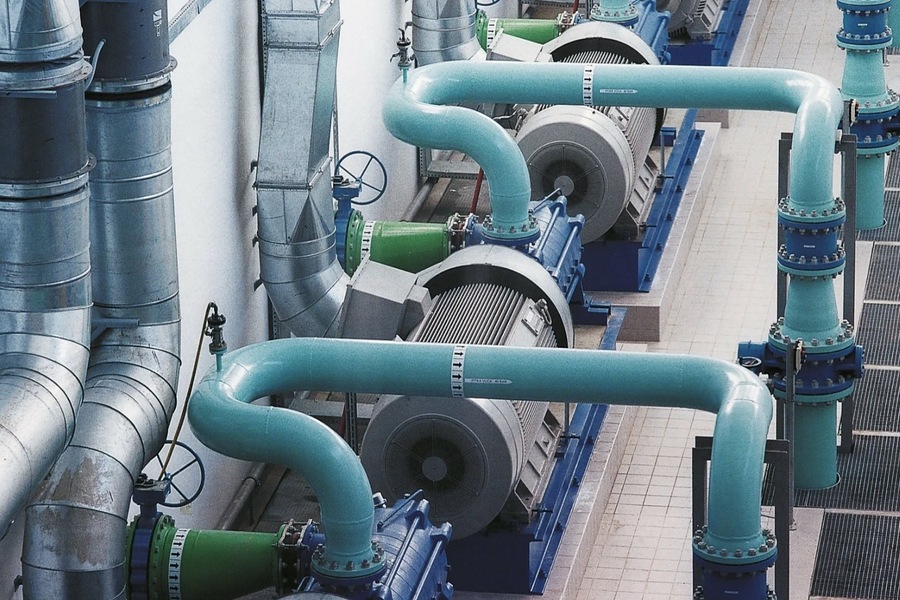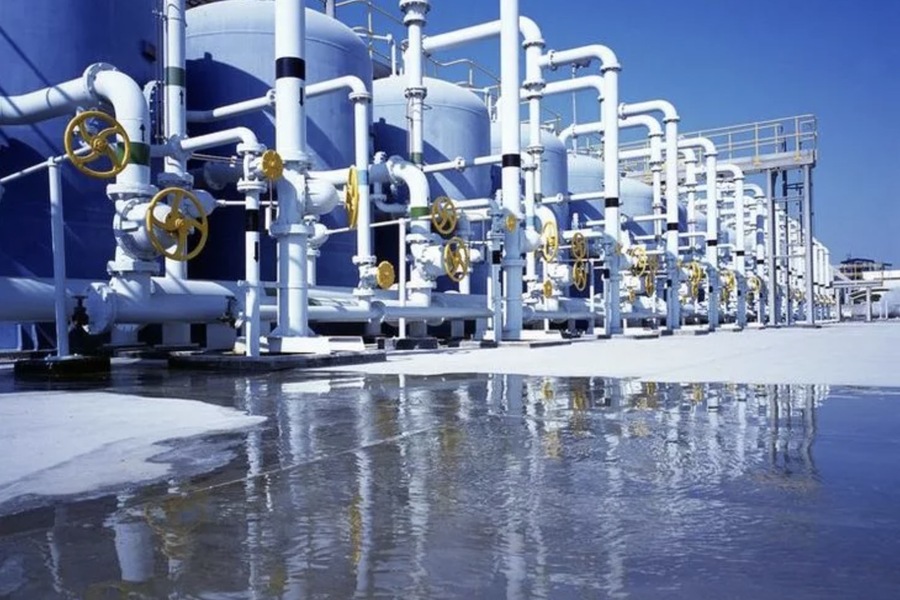The UAE has one of the highest water consumption rates per capita in the world, making the availability of potable water a top priority. Given the region’s arid climate and limited natural freshwater resources, desalination is a critical process for meeting domestic and industrial water demands. Recent technological advancements, particularly in servo motors, have significantly impacted the efficiency and operational reliability of desalination plants. This article delves into how servo motors are transforming the UAE’s water desalination industry, highlighting their applications, benefits, and future potential.
Understanding the Role of Servo Motors in Desalination Processes
Servo motors are used in desalination plants for precise control of mechanical movements, enabling the accurate adjustment of valves, pumps, and other components critical to the desalination process. Their primary function is to convert electrical energy into mechanical motion, allowing for the seamless operation of various parts within the plant. This precision is particularly important in reverse osmosis and multi-stage flash (MSF) distillation, where maintaining specific pressure and flow rates is essential for optimal water production. The integration of servo motors ensures that these variables are controlled with minimal energy consumption and reduced wear on mechanical components.
Enhancing Efficiency in Reverse Osmosis Systems
Reverse osmosis (RO) is the most widely used method for water desalination in the UAE, accounting for more than 60% of the country’s desalination capacity. Servo motors are integral to the functioning of high-pressure pumps and the regulation of flow through membranes. By enabling precise control over pump speeds, servo motors ensure consistent pressure levels, which is critical for maximizing water output while minimizing energy consumption. This level of control helps desalination plants achieve higher water recovery rates, reducing the overall cost of production and lowering the environmental impact.
Improving Operational Stability and Maintenance in Desalination Plants
Servo motors provide enhanced operational stability through their ability to perform continuous adjustments in response to real-time data. This adaptability reduces the likelihood of sudden mechanical failures, which can disrupt water production. Additionally, the compact design and low maintenance requirements of servo motors make them ideal for use in harsh environments, such as those found in the UAE. Regular servo motor repair and maintenance are essential for ensuring longevity and performance, contributing to the uninterrupted operation of desalination facilities. Implementing proactive maintenance strategies can also help identify potential issues before they escalate, further enhancing plant reliability.

Reducing Energy Consumption and Operational Costs
Energy consumption is one of the most significant challenges in desalination, accounting for approximately 40% of the total operational costs. By enabling precise control of pumps, valves, and actuators, servo motors help reduce energy usage in various stages of the desalination process. This is particularly beneficial in the UAE, where electricity prices can significantly influence the cost of water production. With the use of servo motors, plants can operate at variable speeds, adjusting to fluctuations in demand and environmental conditions, thereby avoiding unnecessary energy expenditure.
Facilitating Automation and Remote Monitoring
The UAE’s push towards digital transformation and smart technologies has extended to its water sector. Servo motors, when integrated with advanced control systems, enable the automation of desalination processes, reducing the need for manual intervention. This automation is complemented by remote monitoring capabilities, allowing operators to track system performance, identify inefficiencies, and make real-time adjustments from a centralized location. Such advancements not only enhance plant efficiency but also reduce the risk of operational errors, leading to improved water quality and production rates.
Supporting the UAE’s Sustainability Goals
The UAE’s sustainability strategy, which includes the UAE Water Security Strategy 2036, aims to ensure sustainable water production and consumption. Desalination is a cornerstone of this strategy, and the integration of servo motors aligns with the nation’s goal of achieving energy-efficient water production. By reducing energy consumption and supporting the adoption of renewable energy sources in desalination processes, servo motors contribute to the reduction of the carbon footprint associated with water production. This alignment with sustainability objectives makes servo motors a key component in the future development of the UAE’s water infrastructure.
Addressing the Challenges of Integration and Implementation
While servo motors offer numerous benefits, integrating them into existing desalination facilities can pose challenges. This includes the need for compatible control systems and adequate technical expertise for installation and maintenance. In the UAE, where desalination facilities often operate continuously, minimizing downtime during installation is a critical consideration. Proper planning and collaboration with specialized electro mechanical companies can facilitate smooth integration, ensuring that operational efficiency is maintained throughout the process.
Future Trends: The Role of Servo Motors in Hybrid Desalination Technologies
The UAE is exploring hybrid desalination technologies, which combine multiple processes such as reverse osmosis and multi-effect distillation. Servo motors are expected to play a pivotal role in these systems by providing the precise control needed to balance the varying requirements of different processes. This adaptability will enable the seamless integration of hybrid systems, allowing for higher efficiency and lower energy consumption. As hybrid technologies gain traction, the demand for servo motors capable of handling complex operational requirements is likely to increase.

Enhancing System Reliability with Advanced Servo Motor Designs
Advancements in servo motor technology, including the development of brushless servo motors and those with higher torque capabilities, are further enhancing their applicability in desalination plants. These designs offer improved durability and reliability, making them suitable for continuous operation in challenging environments. The use of corrosion-resistant materials and enhanced sealing technologies also extends the lifespan of servo motors, reducing the frequency and cost of maintenance. As a result, desalination plants in the UAE can operate more efficiently, with fewer interruptions and lower long-term costs.
Addressing Environmental Concerns through Enhanced Control Mechanisms
The environmental impact of desalination, particularly the disposal of brine, is a growing concern in the UAE. Servo motors contribute to addressing this issue by enabling more precise control over the desalination process, which can reduce the volume and concentration of brine produced. This precision allows for the optimization of chemical dosing and other treatment processes, mitigating the environmental impact associated with brine discharge. As environmental regulations become more stringent, the role of servo motors in ensuring compliance will become increasingly important.
Conclusion
Servo motors are revolutionizing the UAE’s water desalination industry by enhancing efficiency, reducing energy consumption, and supporting the automation of complex processes. Their ability to provide precise control over key components, coupled with their adaptability and low maintenance requirements, makes them an ideal choice for desalination plants operating in the region. As the UAE continues to invest in sustainable water production technologies, the integration of servo motors will be instrumental in achieving these goals. Electro mechanical companies specializing in servo motor repair and maintenance will play a crucial role in ensuring that these systems continue to operate at peak performance, contributing to the long-term viability of the UAE’s water infrastructure.

